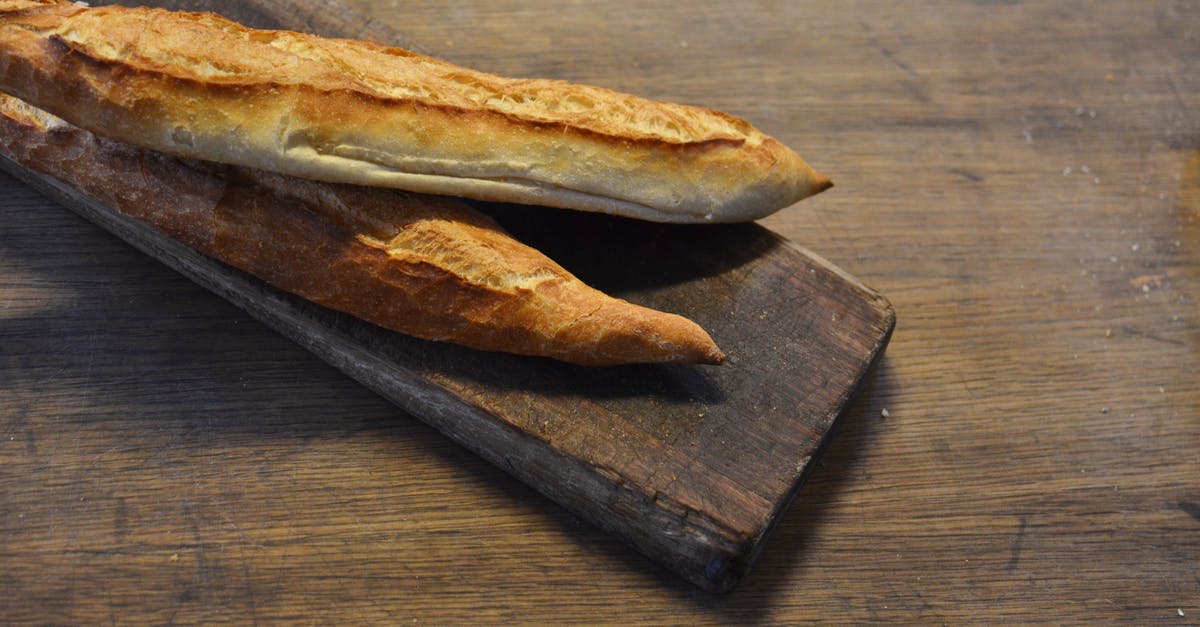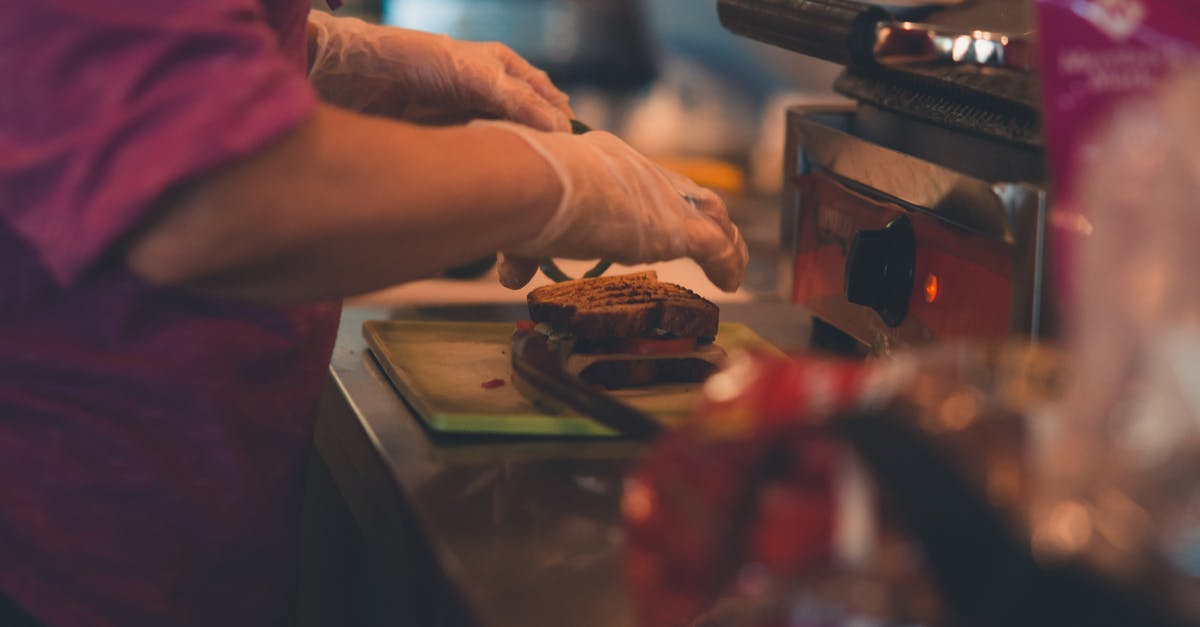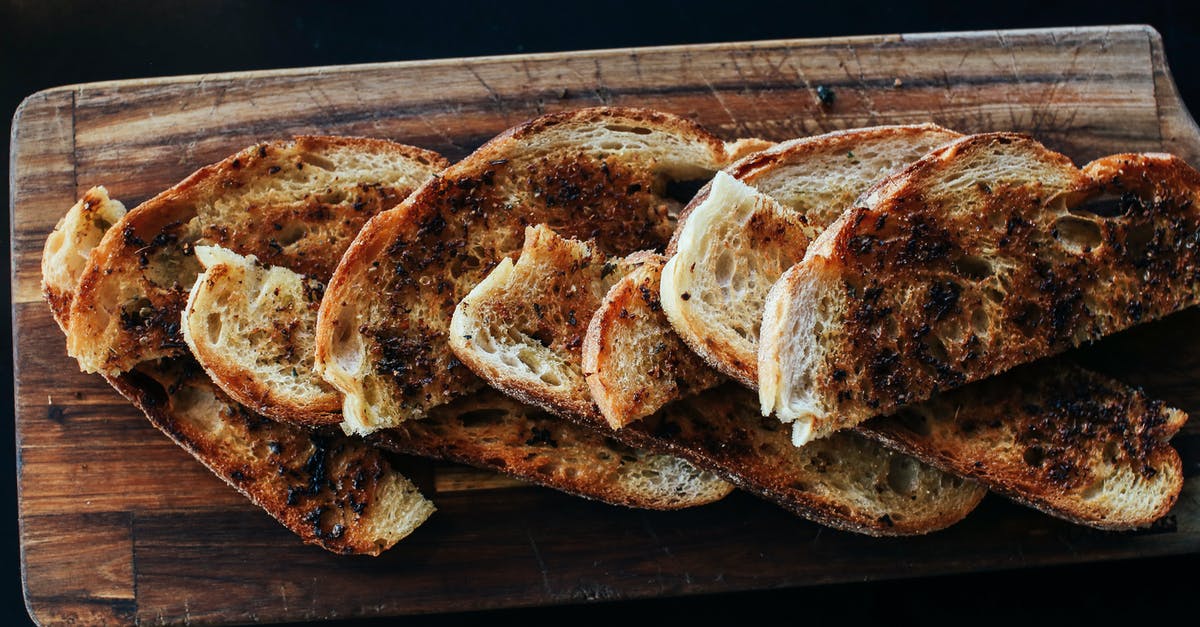What defines a bread as 'artisan'?

'Artisan' is a term thrown around a lot right now in the bread world. What defines something as an 'artisan' bread? Is it a function of the recipe, the technique, or the person? Note, I'm not talking about just store bought bread here - but books like Artisan Breads Everyday. So clearly it can't be just a grocery marketing term. (It could be more generally a marketing term.)
Best Answer
I think everyone agrees that "artisan" gets tossed around as a marketing term that is largely empty or vapid, referring as much to the "old world" images used on the bag than to the bread itself.
However, I think there is an actual "artisan" quality to food, and that it relates to several qualities or ethics of the producer - which you do find in some actual bakeries:
- Develops their own recipes - an artisan baker should be developing recipes that meet their needs. If they don't know enough to do that, then they are just following instructions.
- Tweaks recipes carefully over time to maximize the intended qualities of the bread. An "artisan" producer understands the variables that impact the quality of their product and constantly adjust them to keep the bread quality high, despite changing or variable ingredients.
- Follows the ethic of "Flavor Rules", and flavor is the first priority. Of course they have to be a business-person as well, but recipe changes and enhancements should primarily be made to improve flavor, not reduce cost, improve packability, etc.
- Has a real passion for what they are doing, and holds themselves to the highest standard. Artists are always the most critical of their own work, and are constantly looking for ways to improve.
A home baker may not be an "artist", but when I make "artisan breads" at home (and I think this is what Peter R. is referring to), I do so with an intent to make the bread as good as I possibly can, even if this means baking it tomorrow instead of tonight, or ordering special flours online. I contrast this with my "makin' dinner" baking, where I obviously want it to be good, but am willing to give up some perfection in order to get it done tonight. Neither method is inherently better, but they are undertaken with a different intent and process.
Pictures about "What defines a bread as 'artisan'?"



Quick Answer about "What defines a bread as 'artisan'?"
Flour, water, salt and yeast are the key ingredients of most artisan breads - and a lack of chemical additives in its ingredients list is a sign that it is truly artisan. Sourdough breads may not even include yeast, as they rely on a culture for leavening instead.What is artisanal bread?
When it comes to bread, the term \u201cartisan\u201d doesn't mean 1 particular thing. But generally, artisan bread is homemade, fresh, crusty, and deliciously rustic looking. An artisan is a skilled worker, one who works with their hands.What is artisan bread vs regular bread?
Artisan bread is loosely defined as bread that is produced using traditional methods and ingredients. Choice of flour type, length of fermentation, and how the bread is made are important characteristics for an artisan loaf. Dough is generally made in small batches with a more hands on approach.What is a artisan bakery?
The bakers have to be specifically trained to knead, ferment, shape and bake a handcrafted loaf of bread. The term 'artisan' defines the baker, the product and the process as there is no involvement of machines.\u201dWhy modern sandwich bread is different from 'real' bread
More answers regarding what defines a bread as 'artisan'?
Answer 2
Artisan is really a marketing word. There seems to be a couple of scenarios in which it is used:
To make the consumer believe they are getting a superior product. Instead of 'white bread' (which is just so 1960's, they tell you it's an 'artisan loaf', and they charge 3 or 4 dollars. I ran bakeries for over ten years, and I know how crazy they are for Gross Profit. Normally, chain grocery stores are pushing for 60% profit. We would sell loaves that cost us in the region of 25 cents to produce for over 2 dollars. And to make the consumer feel like they were getting a 'deal', we would say 'artisan' or any other variety of fancy words to dress up our product.
Cover the fact that most grocery stores do not hire any people with actual baking skills. Most often, bakers are hired off the street, and they are trained to add a certain amount of water, a bag of premixed flour, and a couple of pounds of yeast, then press 'start' on the mixer. No trouble shooting abilities, no real skills. Even more prevelant over the last number of years: go to the freezer, open a box of 'artisan breads', and bake the prebaked loaf for ten minutes.
I don't want to sound negative, but that is absolutely the way it is (at least here in Canada/North America).
Bottom line is that most often, when you are buying a loaf of bread marketed as 'artisan', it isn't. It is either parbaked (industry term for "partially baked" - ie frozen and needing just a few more minutes to finish the bake), or it is being produced by someone with very little know how.
EDIT
Fair enough that you are not just looking for the grocery strore usage. However, I guess you could easily take this in a broader sense. There is no 'artisan' technique. What these book sellers (and grocery stores) are doing is trying to make you think that they are teaching you 'old world principals' in bread making. That's the point. It's simply a buzz word to try to get you to pay more.
Answer 3
The Term Artisan SHOULD (not saying it is) be used as a term for Scratch Cooking or baking in old world technique. Meaning, none of this "Semi Homecooked" Crap. I consider myself to be an "Artisanal Chef" meaning that IF I can make it myself. I will. period. Just about anything can be "Artisan" and it is a beautiful term, to me it brings up images of beautiful loaves of bread with a thick crust, deliciously mouth watering cheeses, smoked meats, and wonderful jams and sauces. But sadly this term has been watered down, to mean anything made to look "old world style" never mind that it has been produced with bagged mix, or frozen products. If it looks old world it is artisan. BS in my opinion. Go to a farmers market, local bakery, local coffee shop, or local butcher...there you will find the real Artisan products.
Sources: Stack Exchange - This article follows the attribution requirements of Stack Exchange and is licensed under CC BY-SA 3.0.
Images: Skylar Kang, Craig Adderley, Rachel Claire, Polina Tankilevitch
